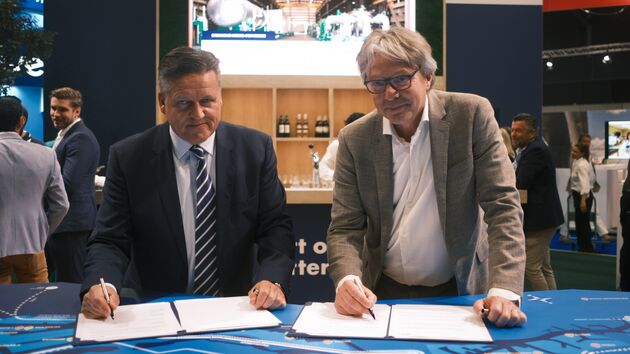Maritime Decarbonisation Boost: Rotterdam's Liquid Hydrogen Initiative
Key Ideas
- The Port of Rotterdam and EDGE Navigation have signed a Letter of Intent to develop a liquid hydrogen infrastructure for the maritime sector, focusing on LH2-powered ships and tankers.
- The cooperation aims to establish policies and procedures for LH2 import and bunkering, preparing Rotterdam to become a key hub for maritime decarbonisation by 2028.
- Liquid hydrogen is seen as a valuable addition to Rotterdam's energy portfolio, contributing to the decarbonisation of the maritime sector and industry.
- The initiative highlights the importance of a well-functioning value chain and collaboration among stakeholders to drive the adoption of sustainable energy solutions.
During the World Hydrogen Summit in Rotterdam, the Port of Rotterdam Authority and EDGE Navigation have announced a partnership to develop a liquid hydrogen infrastructure for the maritime industry. EDGE Navigation is working on LH2-powered cargo ships and tankers, aiming to make Rotterdam a hub for decarbonising maritime activities. The collaboration includes defining import and bunkering procedures for LH2, anticipating the deployment of LH2 ships from 2028. This initiative builds on Rotterdam's existing energy offerings of ammonia and LOHC, emphasizing the significance of a comprehensive value chain for successful decarbonisation. The emphasis on cooperation and stakeholder involvement underscores the necessity of collective action in transitioning to sustainable energy sources.
